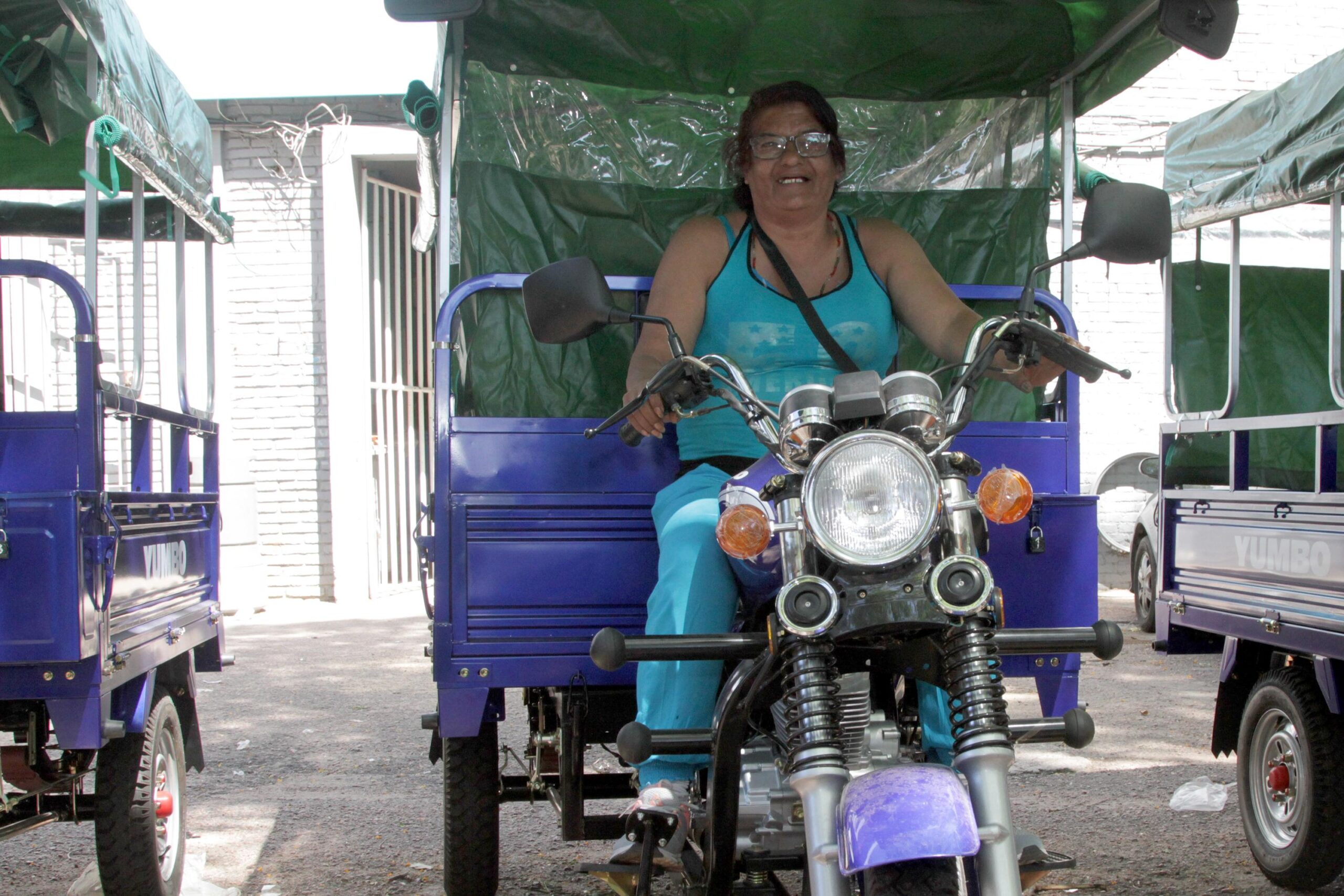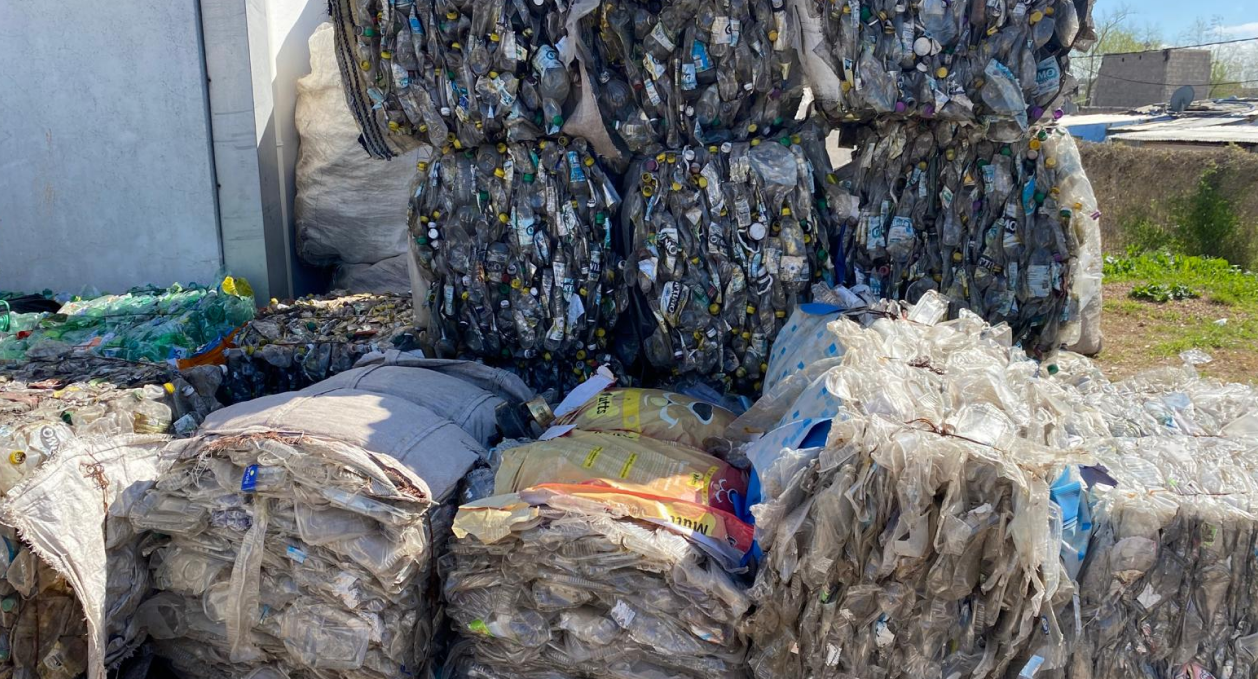Participation
Experimentation Portfolio


Zero-emission socio-environmental management

Purpose
The Motorcarts Program is a labor inclusion initiative for informal recyclers. The Municipality helps them acquire motorcarts and join the official waste collection system. An expansion is planned with 100 additional motorcarts, including 50 electric ones. Within the Deep Demo framework, a pilot with two electric motorcarts was implemented to gather insights for a zero greenhouse gas emission strategy.
What’s new
It is essential to recognize the autonomy and agency of waste pickers and ensure their participation in designing the motorcart expansion, incorporating their knowledge, needs, and improvement ideas. Deep listening revealed that their experiences and perceptions are crucial to achieving more efficient waste management.
Target audience
Women waste pickers in the program. It could strengthen their role in co-creating solutions and other positions within Montevideo Más Verde. Lower fuel and maintenance costs could make the role more attractive and the business model more viable for more people.


Real-time tracking of collection routes
Purpose
Improving the efficiency of household waste management requires optimizing collection, enhancing coordination, and leveraging technology for a faster, more sustainable service that better meets the city's needs.
What’s new
Software was developed to monitor in real time the progress of garbage trucks and their geographic allocation. This solution increased the efficiency and reach of waste collection in Montevideo, allowing for progress tracking, completion percentages, and projected container counts to support decision-making.
Target audience
These actions may influence citizens’ perceptions of cleanliness in the city. They help the Municipality of Montevideo improve waste management efficiency, contributing to the system as a whole.


A new socio-environmental approach to restoration










Purpose
To learn how reimagining public spaces with the community can improve safety, resilience, and urban sustainability. In Bajo Valencia, waste-affected areas were cleaned and transformed with community participation, aligned with SDG 11.7, which seeks universal access to safe and sustainable green spaces.
What’s new
To build multi-level partnerships by mapping key agents in each community. Their needs and aspirations were incorporated into the redesign process, including collaborative actions such as planting native trees.
Target audience
Key stakeholders at all levels within each community. Deep listening revealed that community experience and perceptions should be included before determining how to restore public spaces.


Revaluing the role of waste picking
Purpose
To highlight the work of 130 waste pickers in Montevideo who recover recyclable materials, playing a crucial role in the recycling process. Their work drives sustainability and emphasizes the importance of household waste separation.
What’s new
This is the first audiovisual focused on this. It responds to the demand of cooperative waste pickers to be recognized as environmental and change agents. It also targets the general public to raise awareness about household waste classification.
Target audience
Waste pickers working in cooperatives, seeking a new identity as environmental agents and changemakers, and the general public to foster awareness around proper waste sorting at home.


Change vectors in the future of work

Purpose
To hold discussions and analyze signals and trends that help envision possible future work scenarios. These scenarios may affect individuals and groups most exposed to systemic changes, such as waste pickers.
What’s new
Trend scanning and signal analysis. The initiative gathered leaders from national and departmental public policy offices and representatives from other organizations in a trusted dialogue space to explore possible futures and inspire new actions and policies.
Target audience
Public policy decision-makers. Waste pickers and cooperative members, who identify as environmental agents and may be disproportionately affected by future-of-work change drivers like technological change, demographics, globalization, climate change, and increasing diversity.


Rethinking the city toward new future scenarios

Purpose
A set of interventions was designed for the area surrounding the former Mercado Modelo to revitalize the relocated space and prevent gentrification. These actions aim to reduce urban segregation, promote innovation and investment, and transform the area into a sustainable, inclusive, and resilient space.
What’s new
A multi-level partnership strategy was developed by mapping key stakeholders around the Mercado Modelo. Their needs and aspirations were incorporated into the redesign of interventions, projecting diverse future scenarios.
Target audience
The community around the Mercado Modelo, investors, and key stakeholders.
